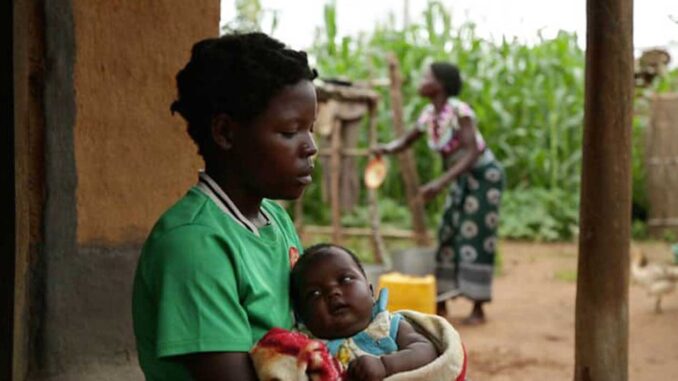
Report by the United Nations Children’s Fund, UNICEF, that 10 million girls below internationally acceptable marriage age may be married off before the end of the decade is alarming, one because of the huge health danger it poses to the children; and two because it will reverse gains achieved in recent campaigns against child marriage. Unfortunately, Nigeria is a key player in the group of countries guilty of the unwholesome practice. Governments at all levels need to reinvigorate their relevant agencies to methodically avoid problems associated with child marriage. In particular, states that are yet to domesticate the Child Rights Act should do so now or forever bury their heads in shame.
Child marriage means any marriage that takes place before age 18; but for many girls, marriage occurs much earlier. In some countries, girls as young as seven or eight are forced by their families to marry much older men. While child marriage occurs in every region of the world, and is practised across cultures, religions, and ethnicities; the highest rates of child marriage by country are observed in sub-Saharan Africa, in countries such as Niger, the Central African Republic, Chad and Nigeria. This is unacceptable, because under sections 21-23 of the Child’s Right Act, 2003, child marriage is prohibited in Nigeria.
Section 21 states that ‘‘No person under the age of 18 years is capable of contracting a valid marriage, and accordingly, a marriage so contracted is null and void and of no effect whatsoever.’’ While Section 22(1) states that ‘‘no parent, guardian or any other person shall betroth a child to any person;’’ and Section 23(d), says that ‘‘a person who betroths a child, commits an offence and is liable on conviction to a fine of N500,000; or imprisonment of a term of five years or to both such fine and imprisonment.’’
With 25 million child marriages averted in the last decade in various countries including Nigeria, UNICEF on this year’s International Women’s Day (IWD) issued a warning that these gains are now under serious threat as 10 million additional child marriages may occur before the end of the decade. The global body attributed the 10 million additional child marriages to the impact of COVID-19, which has added ‘‘fuel to a fire’’ the world was struggling to put out.
Quite contrary to the perception of parents that they are socially and economically protecting their young daughters through early marriage, the practice actually exposes girls to increased health problems and violence, denies them access to social networks and support systems, and perpetuates a cycle of poverty and gender inequality.
Specifically, on COVID-19, UNICEF says that school closures, economic stress, poverty, pregnancy, and parental deaths due to the pandemic, isolation from friends and support networks are putting the most vulnerable girls at increased risk of child marriage. Girls are more likely to drop out of education and not return. Job losses and increased economic insecurity may also force families to marry their daughters to ease financial burdens.
Generally, girls married off early, face immediate and lifelong consequences ranging from sexual exploitation, violence, abuse, discrimination and harmful traditional practices such as female genital cutting and food taboos. They lose their childhood, are robbed of childhood education and their future is endangered. These girls arrive at marriage with bodies inadequately developed for pregnancy because of food taboos that may have resulted in stunting with implications for the size of the pelvis; early/unplanned pregnancy, which in turn makes child-bearing hazardous, some resulting in increased risk of obstructed labour leading to vesico vaginal fistula (VVF) and maternal mortality. In addition, child brides are often unable to negotiate safer sexual practices and are therefore at a higher risk of HIV and other sexually transmitted infections. The practice of child marriage can also isolate girls from family and friends and exclude them from participating in their communities, taking a heavy toll on their mental health and well-being.
Furthermore, the negative consequences of child marriage reach beyond the girls themselves. Available evidence suggests that children of child brides are 60 per cent more likely to die in the first year of life than those born to mothers older than 19, and families of child brides are more likely to be poor and unhealthy.
Although Nigeria adopted the Child’s Rights Act in 2003, giving legal consent to both the United Nations Convention on the Rights of the Child and the African Charter on the Rights and Welfare of the Child, the law does not automatically become applicable in all of its 36 states and has to be domesticated. So far, only 25 of the states have localised the Act, while 11 states, all in northern Nigeria, have shunned it. Largely, this situation has been attributed to religious and cultural practices which the states are unwilling or reluctant to change. Children in those states still suffer female genital mutilation.
Given also that child marriage directly hinders the accomplishment of the Sustainable Development Goals (SDGs), which set development priorities for the world, there is need for urgent action to halt the losses in education, health and future to which the affected girls are exposed. Ending child marriage is the right and smart thing to do. Girls in Nigeria and elsewhere deserve to live full childhoods, go to school, be free of the violence and negative health consequences associated with child marriage, and choose for themselves and without violence or coercion when and whom they marry.
END

Be the first to comment